8 June 2023 : The Hindu Editorial
The Hindu Editorial
8-June-2023
Daily Current Affairs For UPSC ,The Hindu Editorial Summary
1. Sedition — illogical equation of government with state.
Topic: GS2 – Indian polity.
Context:
-
-
-
The Law Commission of India recommended the retention of Section 124A of the Indian Penal Code, which contains the Law of Sedition, and suggested enhanced punishment for the offense in the name of national security.
-
-
Issue:
Background of sedition law:
-
-
-
Section 124A of the IPC was incorporated in 1870 during British rule to suppress the voice of Indians who spoke against the British Raj.
-
Sedition is an offense against the government, not against the country. It involves bringing hatred, contempt, or disaffection towards the government established by law.
-
The law of sedition was defined and applied in two different ways during the British period: one interpretation focused on disaffection and political hatred towards the government, while the other required incitement to violence or disorder.
-
-
Recent recommendations:
-
-
-
The Constitution Bench of the Supreme Court in the Kedarnath vs State of Bihar case (1962) declared sedition as constitutionally valid but stated that it can only be invoked when the words or gestures have a tendency to incite violence.
-
The Law Commission’s recommendations include incorporating the tendency to incite disorder in Section 124A and defining tendency as a slight inclination.
-
The law of sedition violates the fundamental right to freedom of speech and expression under Article 19(1)(a) of the Constitution, as causing disaffection towards a government should not be an offense in a democratic republic.
-
The Law Commission’s recommendation for enhancing punishment for sedition goes against the demand for scrapping this law and fails to consider the absurdity of punishing citizens for expressing views that may cause disaffection towards a government they have the power to remove.
-
The law of sedition contained in Section 124A of the IPC is deemed unconstitutional, as it equates government with the state, which is illogical in a democratic republic.
-
-
2. The retention of sedition goes against the grain of current thinking
Topic: GS2 – Indian polity.
Context:
-
-
-
The Law Commission’s recommendation to retain the offense of sedition in the penal law contradicts current judicial and political thinking that the country may no longer need this colonial-era provision.
-
-
Issue:
-
-
-
Section 124A of the IPC, which defines sedition, aims to punish speech or writing that brings hatred, contempt, or disaffection towards the government established by law.
-
The Supreme Court upheld the validity of sedition in 1962 but with the condition that it should be restricted to words that incite violence or cause public disorder.
-
Legal experts argue that the Law Commission’s report fails to consider the evolution of free speech jurisprudence and the need to test the validity of any restriction on fundamental rights, particularly free speech.
-
The misuse of sedition and its potential for unjustified use to suppress dissent and imprison critics are major concerns.
-
The suggested measures of prior sanction requirement or mandatory preliminary probe may not result in fewer sedition cases.
-
The Commission justifies the retention of sedition by citing extremist movements, separatist tendencies, and the role of social media in propagating radicalization, but other penal provisions can address divisive propaganda and incitement to violence.
-
Instead of penalizing speech against the government, there is a need for an effective legal framework to address hate speech.
-
The government should consider repealing the provision of sedition, regardless of the Law Commission’s report.
-
-
3. Nigeria’s new President faces old problems
Topic: GS2 – International relations.
Context:
-
-
-
Nigeria witnessed a peaceful transfer of power as Bola Ahmed Tinubu became the 16th Executive President, marking a quarter-century of unbroken constitutional democracy.
-
-
Issue:
Background:
-
-
-
However, Nigeria continues to face challenges in realizing its socio-economic potential despite being rich in oil and having competent professionals and entrepreneurs.
-
Issues such as insecurity, high unemployment, corruption, poverty, and inadequate power generation persist.
-
To achieve sustainable development, Nigeria should leverage its competent civil service and professional security establishment, support its vibrant entrepreneurial class, prioritize education and job creation for the young population, revitalize the farming sector, and address oil sector challenges like theft and bunkering.
-
The incoming President has acknowledged these challenges and initiated economic policy reforms, including devaluing the national currency and abolishing the oil product subsidy.
-
Nigeria’s growing population and its potential to harness its human and natural resources will have global implications.
-
-
India’s stakes:
-
-
-
India has significant stakes in Nigeria’s stability and progress, with a large Indian-origin community and substantial economic ties.
-
India’s appropriate technology and investments in Nigeria are valued, but bilateral trade has decreased in recent years.
-
Defence cooperation between India and Nigeria has a strong history, with several past Nigerian Presidents being trained in India.
-
India’s Defence Minister’s visit to Nigeria aims to revive and strengthen bilateral ties.
-
Enhanced engagement between India and Nigeria can benefit both countries.
-
-
4. Parsing the inflation story of the past year
Topic: GS3 – Indian economic – inflation.
Context:
-
-
-
Global inflation reached its highest levels in decades in 2022, affecting both advanced economies and emerging markets.
-
The increase in food and energy prices, caused by disruptions in the supply chain after the war in Ukraine, played a significant role in the inflation surge.
-
-
Issue:
-
-
-
International food prices have decreased since May 2022 but remain higher than pre-war levels due to trade restrictions and adverse weather conditions.
-
Higher global commodity prices and currency depreciation contributed to a sharp increase in inflation in India, particularly in food, fuel, and core inflation.
-
Inflation in India peaked at 7.8% in April 2022 and remained above the upper limit of the inflation target for several months.
-
Supply chain pressures and easing input costs led to a moderation of inflation, but it surged again in early 2023 due to unexpected increases in cereal prices.
-
Fluctuations in food and beverage inflation in India were influenced by global food and fertilizer costs, heatwaves, rising farming input costs, and seasonal price patterns.
-
Fuel inflation remained high due to domestic LPG and kerosene prices, but moderated as global crude oil prices cooled.
-
Core inflation, excluding volatile food and fuel, showed a slight increase, reaching a peak of 7.1% in April 2022 and averaging 6.1% for the year.
-
Clothing and footwear inflation in India significantly increased, averaging 9.5% during the period.
-
-
For Enquiry

8 June 2023 : The Hindu Editorial

8 June 2023 : Daily Current Affairs
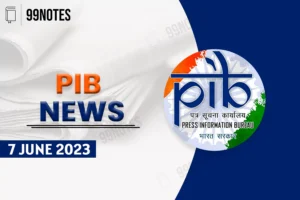
7 June 2023 : PIB
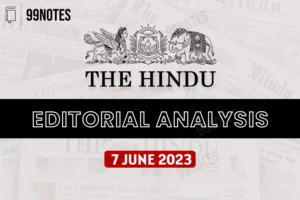
7 June 2023 : The Hindu Editorial

7 June 2023 : Daily Current affairs
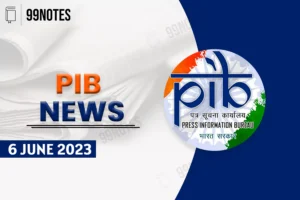
6 June 2023 : PIB

6 June 2023 : Daily Current Affairs
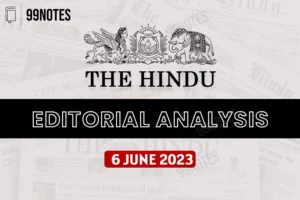
6 June 2023 : The Hindu Editorial
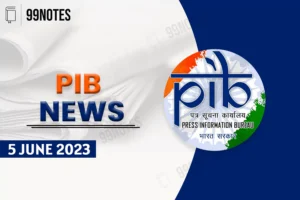
5 June 2023 : PIB
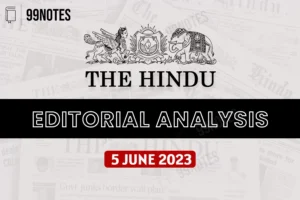
5 June 2023 : The Hindu Editorial
The Hindu 8 June 2023 : The Hindu Editorial The Hindu Editorial
12-May-2023
Daily Current Affairs For UPSC ,The Hindu Editorial Summary
Facebook-f
Twitter
Youtube
1.Marriage…
Daily Current Affairs 8 June 2023 : Daily Current Affairs DAILY CURRENT AFFAIRS
8-June-2023
Daily Current Affairs For UPSC ,Daily Current affairs of The hIndu…
PIB 7 June 2023 : PIB PRESS INFORMATION BUREAU
7-June-2023
Daily Current Affairs For UPSC ,The PIB ( Press Information Bureau…
The Hindu 7 June 2023 : The Hindu Editorial The Hindu Editorial
7-June-2023
Daily Current Affairs For UPSC ,The Hindu Editorial Summary
Facebook-f
Twitter
Youtube…
Daily Current Affairs 7 June 2023 : Daily Current affairs DAILY CURRENT AFFAIRS
7-June-2023
Daily Current Affairs For UPSC ,Daily Current affairs of The hIndu…
PIB 6 June 2023 : PIB PRESS INFORMATION BUREAU
6-june-2023
Daily Current Affairs For UPSC ,The PIB ( Press Information Bureau…
Daily Current Affairs 6 June 2023 : Daily Current Affairs DAILY CURRENT AFFAIRS
6-June-2023
Daily Current Affairs For UPSC ,Daily Current affairs of The hIndu…
The Hindu 6 June 2023 : The Hindu Editorial The Hindu Editorial
6-June-2023
Daily Current Affairs For UPSC ,The Hindu Editorial Summary
Facebook-f
Twitter
Youtube
1….
PIB 5 June 2023 : PIB PRESS INFORMATION BUREAU
5-June-2023
Daily Current Affairs For UPSC ,The PIB ( Press Information Bureau…
The Hindu 5 June 2023 : The Hindu Editorial THE HINDU EDITORIAL
5-June-2023
Daily Current Affairs For UPSC ,The Hindu Editorial Summary
Facebook-f
Twitter
Youtube…




